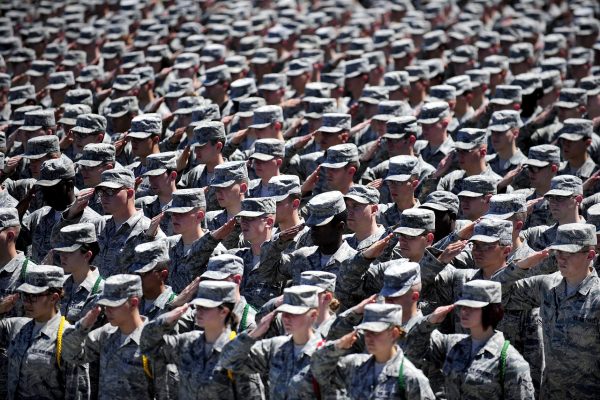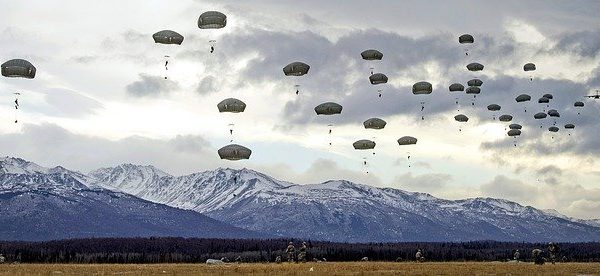Written by Fernando Cardona & Eloisa Thomas

Ok, you’ve sat your ASVAB test and now have the scores… now what? Well, it’s time to look carefully at your scores and see if they allow you to enter into the specialty you wanted. Although your recruiter will be able to guide you, it’s always useful to know what the ASVAB line scores are, and how to understand them. Here’s what you should know.
What is the ASVAB test?
ASVAB is a multiple-choice test used by the Armed Forces to determine whether you can join the forces or not. This test has 2 objectives: figure out your eligibility, and identifying what jobs could be the best for each candidate. The ASVAB is mandatory to enlist in any branch of the Armed Force and the scores are valid for two years.
Sections in the ASVAB test
The ASVAB test questions are organized in 9 different sections. The scores you achieve in each of them is grouped with others in order to figure out your eligibility and determine which MOS you can apply to.
Here are the current sections:
- General Science (GS): measures knowledge of biology and physical science, including astronomy and earth sciences.
- Arithmetic Reasoning (AR)– quantifies your ability to solve basic arithmetic word problems
- Word Knowledge (WK) – measures your ability to understand vocabulary through synonyms
- Paragraph Comprehension (PC)– quantifies ability to obtain information from written material
- Mathematics Knowledge (MK) – measures the knowledge of mathematical concepts and its applications
- Electronics Information (EI)– evaluates your knowledge of electrical current, circuits, devices and electronic systems
- Auto and Shop Information (AS) – measures the knowledge of automotive maintenance and repair. Also wood and metal shop practices
- Mechanical Comprehension (MC)- evaluates your knowledge of the principles of mechanical devices, structural support and the properties of materials
- Assembling Objects (AO)– measures your ability to understand spatial relationships
What type of scores can I get in the ASVAB test?
There are two main score types that result from combining the sections outlined above. These are the AFQT, and your line scores.
Armed Forces Qualification Test
The score that determines your eligibility to enter is the Armed Forces Qualification Test (AFQT). This score compounds your individual scores of four sub-tests: Paragraph Comprehension, Word Knowledge, Mathematics Knowledge, and Arithmetic Reasoning. This means that if your AFQT score isn’t high enough, it won’t matter how good you did on the rest of the test.
Line scores
On top of the AFQT, your line scores will also be calculated. These scores serve to assign people to the different jobs/careers. Depending on which branch you’d like to enter, your career options will have a different name. In the Army and Marine Corps, the possible jobs are called Military Occupational Specialty (MOS). The Navy uses the word ‘rating’, and on the other hand, the Coast Guard and Air Force use the Air Force Specialty Code (AFSC) in the. Each of these specialties or career opportunities – MOS, Rating, or AFSC- has a different line score requirement.

What are line scores in the ASVAB test?
Line scores, also called composite scores, are the result of computing the scores of specific subtests. The line scores are created according the skills needed qualify for a specialty. In this sense, line scores determine what jobs you are eligible for in each force.
Please keep in mind the specifics listed here can change and are only an example of how ASVAB Scores are related to your job selection. In order to successfully access your ideal career, you can ask your recruiter to determine which subtest are more relevant in your area.
Army line scores
Currently, the Army considers 10 separate composite scores
- Combat (CO) – this score takes into account Verbal Expression (VE), Auto & Shop (AS) and Mechanical Comprehension (MC).
- Field Artillery (FA) – to calculate this line score, the army will take into account Arithmetic Reasoning (AR) Mathematics Knowledge (MK) and Mechanical Comprehension (MC) scores.
- General Maintenance (GM) – for a good GM score, you need to have good results in General Science (GS), Auto & Shop (AS), Mathematics Knowledge (MK) and Electronics Information (EI).
- Mechanical Maintenance (MM) – this one takes into account your Auto & Shop (AS), Mechanical Comprehension (MC) and Electronic Information (EI) scores.
- General Technical (GT) – you’ll need good Verbal Expression (VE) and Arithmetic Reasoning (AR) scores.
- Electronics (EL) – this score compounds the General Science (GS), Arithmetic Reasoning (AR), Mathematics Knowledge (MK) and Electronic Information (EI) scores.
- Surveillance and Communications (SC) – you’ll need to have good scores in Verbal Expression (VE), Arithmetic Reasoning (AR), Auto & Shop (AS) and Mechanical Comprehension (MC).
- Skilled Technical (ST) – this line score compounds General Science (GS), Verbal Expression (VE), Mechanical Comprehension (MC) and Mathematics Knowledge (MK).
- Operators and Food (OF) – to calculate this score, the Army compounds Verbal Expression (VE), Auto & Shop (AS) and Mechanical Comprehension (MC).
- Clerical (CL) – finally, this takes into account your Verbal Expression (VE), Arithmetic Reasoning (AR), and Mathematics Knowledge (MK) scores.
Marines line scores
The Marine Corps calculates different scores, and only has three. These are:
- Electronics Repair, Missile Repair, Electronics & Communications (EL) – this line score compounds General Science (GS), Arithmetic Reasoning (AR), Mathematics Knowledge (MK) and Electronic Information (EI).
- General Maintenance, Construction, Utility and Chemical Maintenance (MM) – to calculate this, they’ll take into account your General Science (GS), Auto & Shop (AS), Mathematics Knowledge (MK) and Electronics Information (EI) scores.
- General Technical, Special and Officer Programs (GT) – this one compounds the scores from Verbal Expression (VE) and Arithmetic Reasoning (AR).
Air Force lines scores
The air force uses their own line score system to see whether or not you’re qualified. In this branch, there are four composite score areas, commonly known as MAGE:
- Mechanical Aptitude – it uses your General Science (GS), Mechanical Comprehension (MC), and Auto/Shop (AS) scores.
- Administrative Aptitude – this one only takes into account your Verbal Expression (VE) score.
- General Aptitude – to calculate this, they’ll use both your Arithmetic Reasoning (AR) and Verbal Expression (VE) scores.
- Electronics Aptitude – this one compounds your General Science (GS), Arithmetic Reasoning (AR), Mathematics Knowledge (MK), and Electronics Information (EI) scores.
Navy and Coast Guard line scores
Unlike the previous branches, the Navy and the Coast Guard do not use line scores. To determine job qualification, these forces use direct ASVAB subtest standard scores. This means if a job requires a General Science (GS), Auto & Shop (AS) and Mathematics Knowledge (MK) score of 80, the sum total of your scores in each of these subtests from the ASVAB would have to be 80 or above.
So for example, to be able to enter a job in the navy such as a Machinist Mate MM (submarine), you will need a score of 210, counting the scores VE+AR+MK+MC. These requirements change according to the needs of the force, so talk to your recruiter to figure out what you need to aim for.
Final thoughts
Of course, every branch of the Armed Forces try to give applicants a career track they will enjoy. However, the needs of the Army, Navy, Marine Corps, Air Force, or Coast Guard always come first. Keep in mind that regardless of your asvab score, no job is guaranteed. However, you’ll have a better chance of starting with the specialty you like if you get good scores in the most relevant sections. As always, ask your recruiter for the latest information on the forces’ needs and where you could be recruited.
